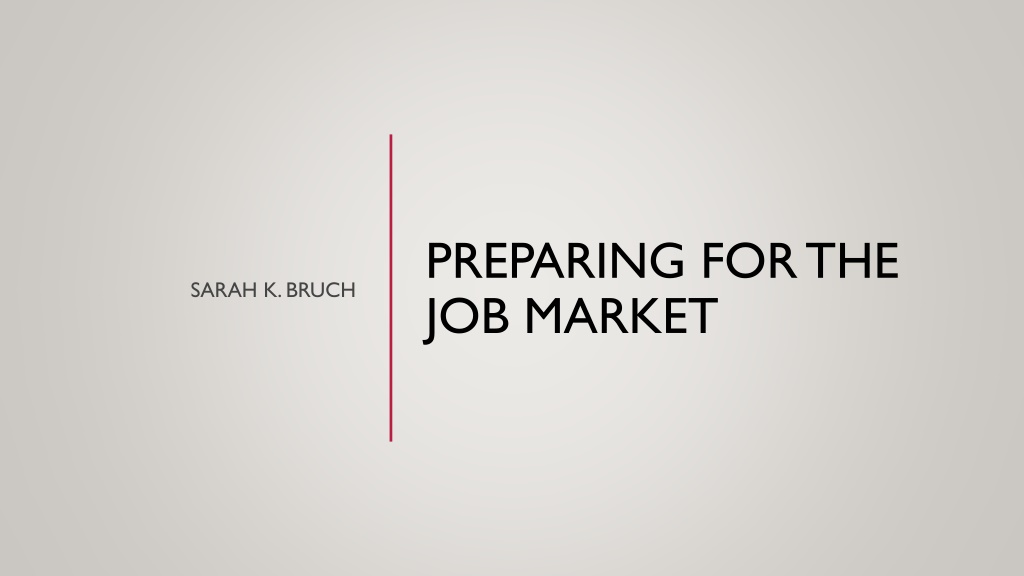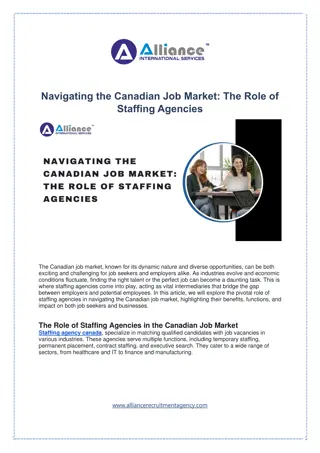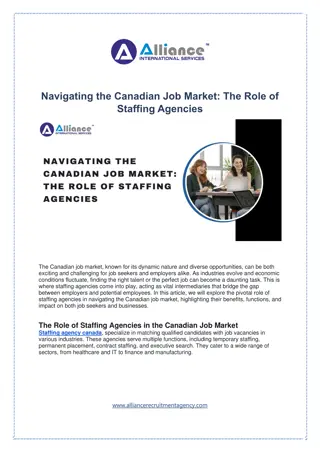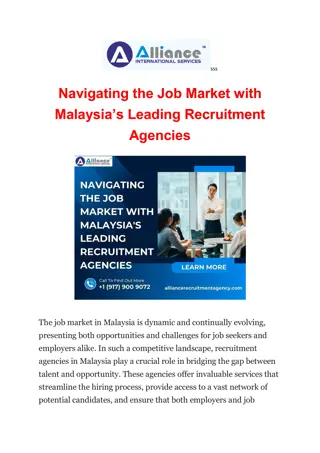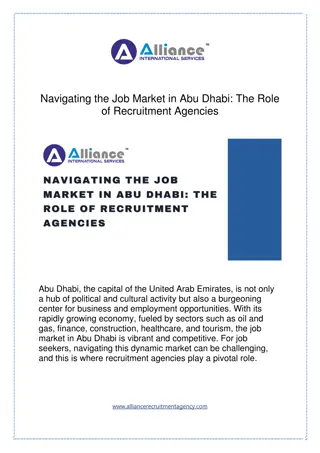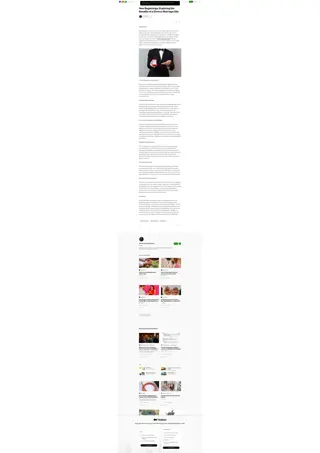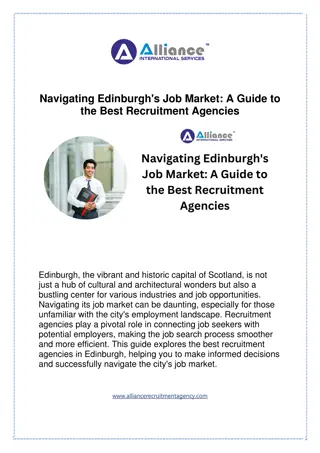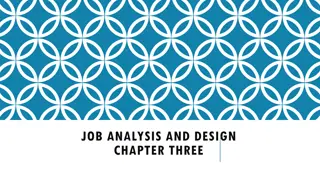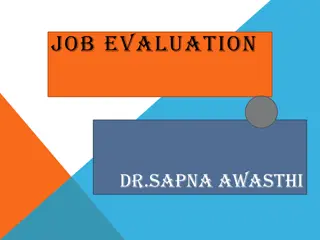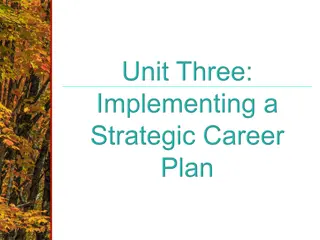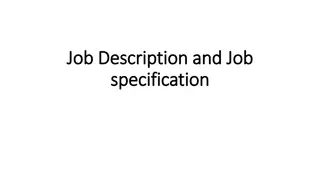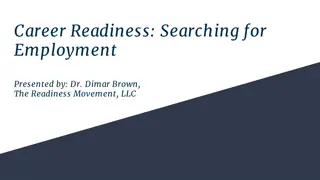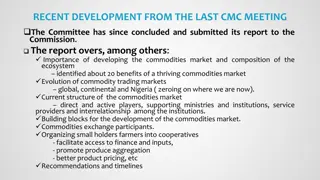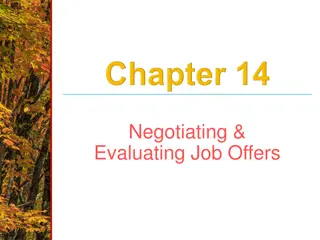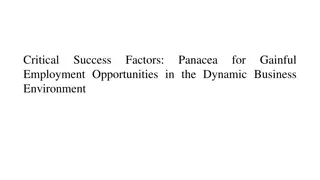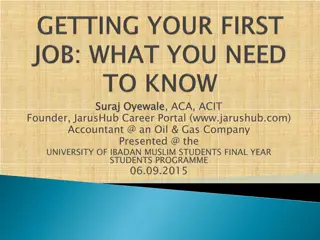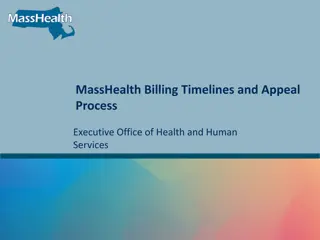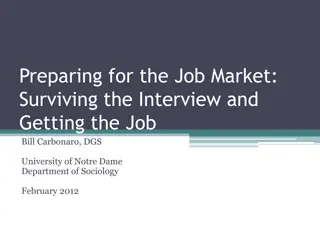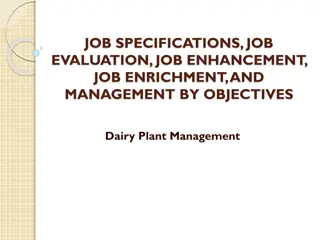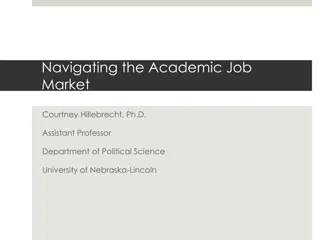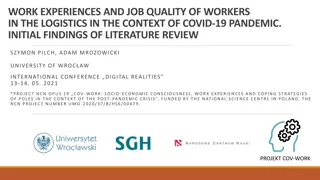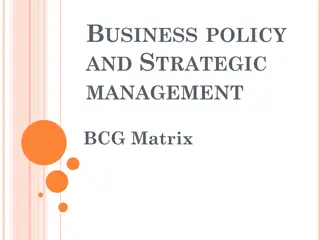Navigating the Job Market: Tips and Timelines
Discover valuable insights on preparing for the job market, including timelines for academic and non-academic research jobs, job search basics, types of academic positions, and essential materials for a successful job application process. Gain a comprehensive overview of the academic job market, learn about different types of research jobs in academia, and get ready to embark on your career journey with confidence.
Download Presentation

Please find below an Image/Link to download the presentation.
The content on the website is provided AS IS for your information and personal use only. It may not be sold, licensed, or shared on other websites without obtaining consent from the author.If you encounter any issues during the download, it is possible that the publisher has removed the file from their server.
You are allowed to download the files provided on this website for personal or commercial use, subject to the condition that they are used lawfully. All files are the property of their respective owners.
The content on the website is provided AS IS for your information and personal use only. It may not be sold, licensed, or shared on other websites without obtaining consent from the author.
E N D
Presentation Transcript
PREPARING FOR THE JOB MARKET SARAH K. BRUCH
AGENDA TIMELINE & JOB SEARCH BASICS REQUIRED MATERIALS & PREPARATION RECENT EXPERIENCE PANEL Q & A
LOTS OF DIFFERENT TYPES OF JOBS! Source: Lantsoght, Eva. 2018. Navigating Career Options After Your PhD. Pg. 257-287 in The A-Z of the PhD Trajectory: A Practical Guide for a Successful Journey. Springer Publishing.
TIMELINES FOR ACADEMIC AND NON-ACADEMIC RESEARCH JOBS Vary by field and discipline For many disciplines/fields start in late summer or early fall w/ job posting listed Vary by type of organization Academic jobs more likely to follow specific timeline government and industry jobs more likely year-round openings Several months long process Lots of preparation of materials prior to actual application Typically substantial time between initial application and interview phases
Academic Job Market General Overview and Timeline Prepare for preliminary (Zoom) interviews Respond to supplemental materials requests Prepare and practice job talk for on-site visits Prepare for campus visits Spring market offers out Discuss plans and goals w/ faculty, committee members, mentors (i.e. what kind of job do you want? And are you ready for the market?) Prepare documents for job market (CV, cover letter, research, teaching, and diversity statements) Request LOR from faculty Search for job postings Create materials for specific jobs Apply for jobs Summer Winter Late Spring Late Fall Early Fall December Early Spring Prepare for preliminary (Zoom) interviews Respond to supplemental materials requests Prepare and practice job talk for on- site visits Prepare for campus visits Search for job postings Create materials for specific jobs Apply for jobs Fall market offers out
TYPES OF RESEARCH JOBS: ACADEMIC Lots of academic job locations vary in terms of tier/prestige of institution, schools, and departments range from R1 (research intensive) institutions to less research intensive (R2/R3) prestige/ranking of institutions and programs/departments vary Vary in terms of types of institutions: Doctoral and masters (i.e. schools with graduate programs) BA-focused schools (range from state schools, private schools, liberal arts etc.) Vary in terms of expectations for job more teaching-focused jobs vs classic 20-20-40 jobs (teaching, service, and research) Resources: UChicago Grad Guide to Academic Careers (link)
TYPES OF RESEARCH JOBS: ACADEMIC Lots of different types of academic positions Post-docs Vary in terms of expectations for job (teaching, service, and research) Tenure-track vs contractual professorships Visiting assistant and adjunct professorships Staff scientists at research centers or institutions affiliated with university or college Resources: UChicago Grad Guide to Academic Careers (link)
TYPES OF RESEARCH JOBS: NONACADEMIC Government/public service (federal, state and local governments, agencies, departments etc. research directors, policy directors etc.) Policy research organizations many types (Abt, AIR, MDRC, Rand, Mathematica, Brookings, Urban Institute, etc.) Small, single-issue nonprofits to for-profit firms with thousands of employees Research centers within universities (poverty research centers at Wisconsin, Kentucky, Michigan, Washington, Stanford, Davis, Columbia; education research centers at Vanderbilt, Penn, Wisconsin, Washington, etc.) Institutional assessment and research positions within universities Nonprofit and service delivery organizations (United Way, local nonprofits, etc.)
JOB SEARCH Finding Positions of Interest Regularly check professional association and other HE job listings Use your social and professional networks to find out about opportunities & notify on market Selecting Positions to Apply For Determine the type of jobs you are interested in (i.e. teaching-focused, research-focused) Apply for jobs that are a match or fit with your expertise and interests Apply broadly (to jobs you are qualified for), don t be overly narrow in your focus on an ideal job
ACADEMIC RESEARCH JOB LISTING WEBSITES Sociology and Criminal Justice ASA job bank (link) ACS career center & positions (link) Multi-Field and Discipline Chronicle of Higher Education job listings (link) Inside Higher Ed job listings (link) HigherEd Jobs (link) Policy and Administration APPAM job listings (link) NASPAA career resources (link) APSA job listings (link) Education AERA job listings (link)
POLICY AND RESEARCH JOB LISTING WEBSITES APPAM job listings (link) NASPAA career resources (link) Chronicle of Higher Education job listings (link) Inside Higher Ed job listings (link) HigherEd Jobs (not only faculty positions) (link) USAJobs (link) State and local government jobs (link) Idealist.org (link)
RESOURCES NON-ACADEMIC JOBS General information about non-academic/AltAc jobs and resources (link) Chronicle of Higher Education The Ph.D. s Guide to a Nonfaculty Job Search (link) For Would-Be Academics, Now Is the Time to Get Serious About Plan B (link)
RESOURCES FEDERAL GOVERNMENT JOBS Application via USAJOBS Info on how to apply (link) Webinars and info sessions on applying (link) Important tips on applying for federal government research jobs Some agencies use automated application review so be sure to get information on how to ensure your application materials are using key words from the position requirements. Be sure to identify the appropriate level of position that you qualify for (positions are assigned levels or general equivalence scales/grades (i.e. GS-12 which specifies the required specialized experience, typically education and prior experience). Many positions allow for remote work, and you can filter positions for this.
RESOURCES STATE AND LOCAL GOVERNMENT JOBS Many state government agencies (education, human services, etc.) have research positions (Director of Research, Director of Research and Evaluation, Director of Policy Analysis, etc.) Most states have employment listings available online on state government website many state websites are inclusive of local govt positions Definitions and descriptions of research vary many inclusive of program evaluation, technical assistance, and performance management
APPLICATION MATERIALS Most Commonly Required Elements Preparation of Application Materials CV Plan for 3-6 months of preparation Cover letter Revising draft documents by seeking input and feedback from advisors, mentors, and peers Research statement Adapting and selecting materials for specific jobs Writing samples Teaching statement, philosophy, evidence of effectiveness, student evaluations, or portfolio Diversity or diversity, equity, and inclusion statement Letters of recommendation
COVER LETTER What are some pieces of advice on how to write a cover letter for research position? Super important document, not a pro-forma document! Tailored to the specific position (i.e. describes the fit/match between you and the position and why you are the ideal candidate) Introduction to your intellectual agenda (broader than dissertation, prospective not retrospective) Provides narrative of your accomplishments (awards and recognitions, publications) and how these fit into your overall intellectual agenda Differentiated by type of positions (i.e. research/R1, teaching intensive, post-doc) Resources: UNC cover letter resource (link); UI cover letter resource (link); Inside HE How to Write a Successful Cover Letter (link)
RESEARCH STATEMENT & WRITING SAMPLES What should be included in a research statement? Crafting a narrative of yourself as a researcher Summary of research projects and contributions Future plans for ongoing and new projects What makes a good writing sample and how do I select which piece/s to submit? Submit peer-reviewed published work when possible Dissertation chapter(s) is common Select writing sample that balances showcasing best work and most relevant to position Resources: UW guide on writing research statements (link)
TEACHING MATERIALS What kind of teaching materials should I be prepared to submit? Positions vary in terms of what materials they request, most common is teaching statement, sometimes ask separately for teaching philosophy, evidence of effectiveness, student evaluations, or portfolio w/ sample syllabi. Teaching statements typically include: Statement of teaching philosophy Description of teaching experience, classes taught or TA ed Description of what you can teach and are interested in teaching Resources: Cornell teaching statement guide (link); Vanderbilt teaching statement guide (link)
DIVERSITY/DEI MATERIALS What do diversity or DEI statements typically include? Past experiences, achievements, and work in relation to diversity/DEI Description of understanding, values, perspectives related to diversity/DEI Future goals and plans in relation to diversity/DEI Resources: Inside HE piece on advice for graduate students in relation to DEI (link); U Penn resource (link); Tips for Writing DEI statement (link); UC-Berkeley rubric (link)
LETTERS OF RECOMMENDATION What kinds of considerations should I be thinking of as I solicit letters of recommendation? Who should I ask? Primary advisor and faculty members most familiar with your research Faculty you have worked with on other research projects or who can speak to your intellectual strengths and/or teaching expertise Different positions, different letter writers? Some consideration should be given to the position and which of your letter writers can provide the best account of your strengths in that area
RESOURCES Slide decks for previous sessions CV and Academic Bio Workshop Presenting and Talking about Your Work Preparing for Research Careers Preparing for the Academic Job Market Academic Publishing APPAM Podcast: The Wonk, Episode 3: The Public Policy Job Market 101 (link) Available on Biden School website at: https://www.bidenschool.udel.edu/student-resources
